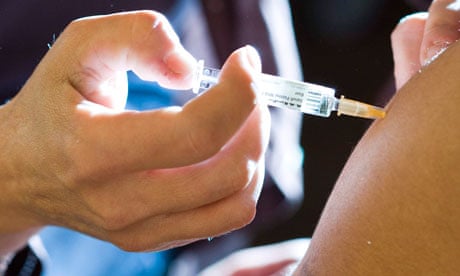It is the sort of scene that belongs in a film noir, not a 21st-century democracy: an uncooperative suspect being injected with a dose of "truth serum" in an attempt to elicit a confession. But some detectives in India still swear by so-called narcoanalysis despite India's highest court ruling that it was not only unreliable but also "cruel, inhuman and degrading".
The technique is back in the news after officers from India's Central Bureau of Investigation (CBI) asked a judge for permission to administer sodium pentothal to a high-profile Indian politician and his financial adviser embroiled in a corruption case. The drug is a barbiturate that acts on the central nervous system, dissolving anxiety, inducing drowsiness and even unconsciousness.
CBI investigators made the application in order to try to prove embezzlement allegations against Jagan Mohan Reddy, the charismatic son of YS Rajasekhara Reddy, the former chief minister of Andhra Pradesh in southern India, who died in a mysterious helicopter crash in 2009. They argue that the technique is warranted because neither Reddy nor his auditor are co-operating with the inquiry.
Reddy Jr tipped for the chief minister's job himself, has protested vehemently against the use of narcoanalysis on the grounds that a supreme court ruling in 2010 held that such tests are illegal without consent from the individuals.
But Dr Gandhi PC Kaza, chairman of the Truth Lab, India's first independent forensic service, told the Guardian that despite narcoanalysis being "unscientific, undemocratic, illegal and inhumane", it was still used with enthusiasm in certain Indian states – notably Gujarat and Karnataka. He condemned the practice, saying it had "no place in the world's greatest democracy".
There are no official figures for the number of suspects who have been subjected to narcoanalysis, but VH Patel, deputy director at the Directorate of Forensic Sciences, Gandhinagar, in Gujarat, western India, told the Guardian he had personally conducted narcoanalysis in nearly 100 cases. He estimates that his lab gets requests for narcoanalysis three to four times a month.
He insisted that the procedure was safe and ethical. "There is no violence involved. It's a good methodology that helps the investigation," he said. "After all, there has to be justice for the victims.If we conduct narcoanalysis on a terror suspect, everyone kicks up a fuss, but what about the people who have suffered?"
Patel said he worked with a team of three other scientists to administer the tests, as well as a psychiatrist and an anaesthetist, who decides which drugs to use at what dosage. "It takes almost a week to test a single person. We conduct various medical tests and interviews with them," he said. "It's an important methodology but we cannot say how accurate it is in the end. That depends on the investigation."
A person injected with "truth serum" is generally too woozy to volunteer lengthy explanations, but is usually able to give answers to certain questions and clues. Patel said his lab had received no complaints regarding side-effects. But in 2011, Sheikh Mujib, an engineering student who was accused in a bomb blast case in the Indian city of Ahmedabad, complained of health problems after narcoanalysis.
Arun Ferreira, a political activist who underwent forced narcoanalyis after being arrested in 2007 under the Unlawful Activities Prevention Act for being an alleged Maoist, described the procedure as a sort of torture – and one whichthat "only decreases the individual's ability to lie and is in no way a foolproof method for uncovering the truth". The revelations supposedly made under the influence of truth serum may contain fantasies like a person under the influence of alcohol."
Sometimes defendants undergo the procedure in an attempt to prove their innocence. Rajesh and Nupur Talwar, currently on trial in Delhi for murdering their 14-year-old daughter, volunteered for narcoanalysis in an attempt to prove their innocence. The inventor of narcoanalysis, an American obstetrician called Robert House, originally meant it to exonerate prisoners. During his time in labour wards around 1915, he noticed that the drug administered to women during childbirth, scopolamine, had a strange effect on his patients, causing them to talk freely. In 1922, he arranged to interview two suspected criminals under the influence of the same drug – they denied the charges and were later found not guilty.
Many experts believe narcoanalysis can be classed as torture under the United Nations Convention against Torture. Though India signed the convention in 1997, its parliament never ratified it.
